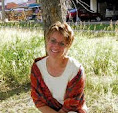Round up of science picture books
I’ve been busy reading of
late and have three pictures books to recommend.
 Bone by bone: comparing animal skeletons by Sara Levine is
a terrific information book that engages readers with questions about what kind
of animal they would be if --- [insert a specific bone size or
specialization here]?
Bone by bone: comparing animal skeletons by Sara Levine is
a terrific information book that engages readers with questions about what kind
of animal they would be if --- [insert a specific bone size or
specialization here]?
For example,
What if you didn't have any arm or leg bones? What
kind of animal would you be if you had just a skull, vertebrae and ribs?
[turn the page] and…
There you are as a snake.
AND
What kind of animal would you be if your finger bones
grew so long that they reached your feet?
[turn the page] and…
Now you have an arm with a bat wing.
It’s a fun exploration of
skeletons, exploring similarities and differences, vertebrates and
invertebrates.
Flight of the Honey Bee by Raymond Huber highlights the importance of the
honey bee for pollinating plants, resulting in seed and fruit production. This picture book looks at the life of a
scout, a specialized bee within a hive that hunts for flowers. She’s a skilled navigator and will
communicate with her sister bees the location of good sources of pollen and
nectar. During her search she escapes a
hungry bird, sits out a rain storm and fights off the attack of a yellow-jacket
on her hive. There is so much
information packed into this engaging book with its brightly coloured
illustrations adding vibrancy to these creatures’ busy lives, it will be
impossible to not to learn something.
 My last recommendation is Farmer Will Allen and the Growing Table by Jacqueline Briggs Martin. Will Allen is a real person with a mission to
teach people the importance of good food and how to grow it for ourselves. As a child, he took for granted the plentiful
food his mother put on the table every night.
As a young man, he had no desire to continue the ‘farming’ traditions of
his family and turned to professional basketball instead. But a chance occurrence helping a friend dig
up potatoes, reawakened his desire to grow his own food. He felt that everyone, everywhere had a right
to good food. But what to do for those
folks living in the city?
My last recommendation is Farmer Will Allen and the Growing Table by Jacqueline Briggs Martin. Will Allen is a real person with a mission to
teach people the importance of good food and how to grow it for ourselves. As a child, he took for granted the plentiful
food his mother put on the table every night.
As a young man, he had no desire to continue the ‘farming’ traditions of
his family and turned to professional basketball instead. But a chance occurrence helping a friend dig
up potatoes, reawakened his desire to grow his own food. He felt that everyone, everywhere had a right
to good food. But what to do for those
folks living in the city?
Will Allen had a vision and
with lots of hard work, a steep learning curve and lots of help he turned
empty, unproductive city lots into mini-urban farms. His ‘table’ continues to grow by teaching
people how to grow food in healthy ways.
The book ends with a letter from Will Allen encouraging readers to grow
their own fruits and vegetables in whatever space available, whether it’s in
pots on a balcony or in a backyard.
All books will work well in
the elementary grades.














